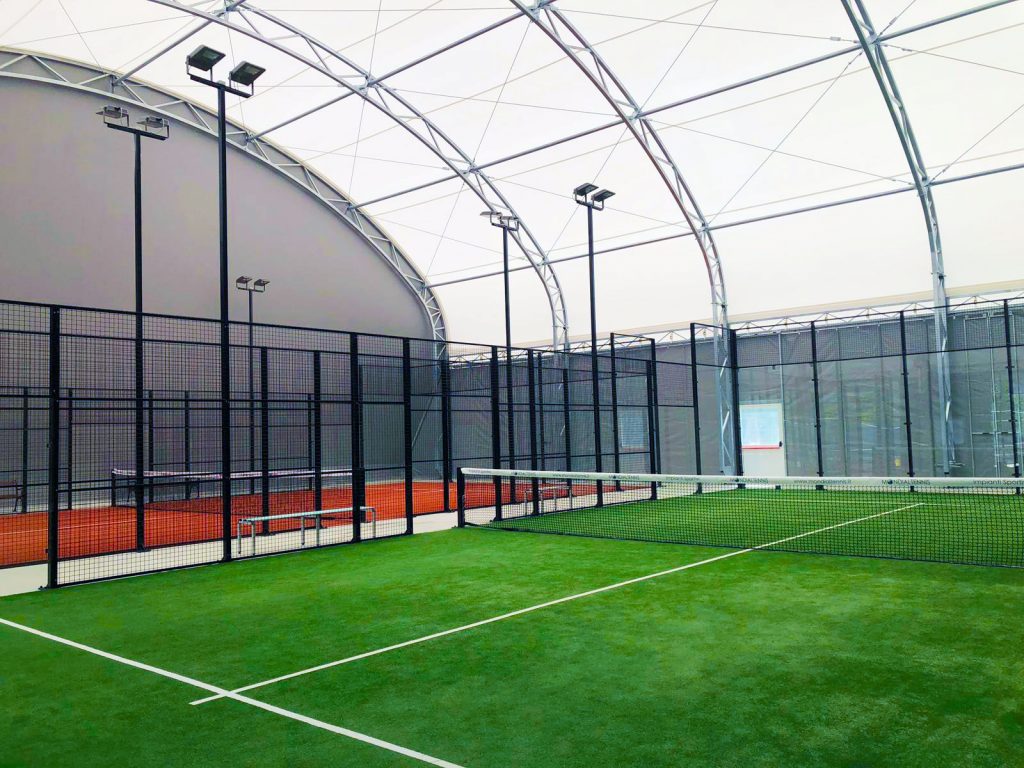We recently read in SportsNation magazine that West Hants Tennis Club failed in a bid to introduce three new padel courts at its site earlier this year due to the “unacceptable noise impacts” of the new courts. The application attracted dozens of objections, with one resident expressing concerns that “noise like gunfire” would come from the courts.
We’ve also heard that in other European countries, where participation in padel is rising just as quickly as it is here, some local councils have ruled that padel has no place in towns or outdoors. In an area of North Belgium, the local Minister for the Environment is regulating the construction of padel sites to ensure that all courts are covered so that the noise doesn’t upset the neighbours.

There’s no denying that the noise impact of padel is louder than tennis. It usually involves more players, is fast-paced and the stroke intensity is higher because it’s played on a smaller court. There’s also the sound of the ball bouncing off the walls to contend with.
Unsurprisingly, we’re on the same side as the very intelligent Minister in Belgium and agree that the most sensible solution is to build indoor courts. This would also solve the other issue of light pollution as indoor courts allow play to continue well into the night without upsetting locals or wildlife with an unnatural glare.
Of course, it’s not just about keeping the neighbours happy and if we are to keep up with the rate at which people are discovering padel and wanting to play, then we can’t limit construction to remote locations where complaints from the neighbours are nothing to worry about. Tennis clubs in towns and cities need to evolve just as much as those in rural areas to ensure their continued success and future sustainability. Introducing padel is a proven way of reinvigorating these clubs, bringing in new members and boosting involvement in both sports. It should be noted that padel and tennis can exist harmoniously side by side and actually help each other to flourish.

Whether it’s an existing sports club considering the introduction of padel courts, or investors are looking for exclusive padel sites, having courts that are covered not only takes away the issue of noise and light pollution but it also helps to generate income by retaining members throughout the winter months, when it’s wet, cold, dank and dark.
The LTA conducted some research, which showed that lousy weather equates to a 30% reduction in play opportunities in the UK, but adding a canopy increases utilisation by 50%. Structures like ours that are long-lasting, cost-effective and aesthetically pleasing are therefore a sound investment for the local community and your business.
With more than 20 million players worldwide, padel is considered by many to be the fastest growing sport globally and we have so much catching up to do. There are roughly 250 courts in the UK and that is expected to reach 400 by the end of 2023 but we mustn’t let petitions against noise and light pollution stop the rate of development in urban areas. The best solution to building padel courts that please everyone (in our incredibly biased view) is to cover them!
